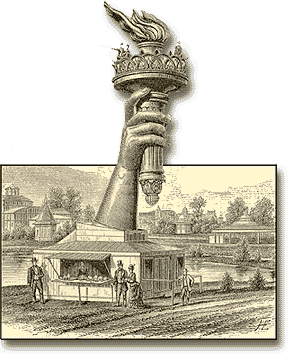As doenças e a morte do "Ocidente"
 «Gibbon called the decline and fall of the Roman Empire "the greatest, perhaps, and most awful scene in the history of mankind." Could a still more awful scene be unfolding in the form of the West's decline and fall? For Gibbon, Rome's decline was the result of military overstretch, inner decadence, religious conversion, and barbarian invasion. To my mind, all of these are operating today to undermine what remains of Western dominance in the world. If the United States suffers mainly from the first and second, the European Union seems even more afflicted by the third and fourth.
«Gibbon called the decline and fall of the Roman Empire "the greatest, perhaps, and most awful scene in the history of mankind." Could a still more awful scene be unfolding in the form of the West's decline and fall? For Gibbon, Rome's decline was the result of military overstretch, inner decadence, religious conversion, and barbarian invasion. To my mind, all of these are operating today to undermine what remains of Western dominance in the world. If the United States suffers mainly from the first and second, the European Union seems even more afflicted by the third and fourth.A hundred years ago, as we have seen, the West could justly claim to rule the world. After a century during which one Western empire after another has declined and fallen, that can no longer credibly be claimed. Empires, of course, take time to decline and fall. Gibbon begins his narrative in A.D. 96; he ends it in 1430, more than a millennium later. Yet there can be no question that the pace of imperial descent has quickened in modern times. The longest-lived empire after the Romans was the Ottoman Empire, which endured for 469 years. The East European empires of the Habsburgs and the Romanovs each existed for more than three centuries. The Moguls ruled a substantial part of what is now India for 235 years. Of an almost identical duration was the realm of the Safavids in Persia. The Spanish, Dutch, French, and British empires can all be said to have endured about 300 years. The lifespan of the Portuguese empire was closer to 500.
The empires created in the 20th century, on the other hand, were all of comparatively short duration. The Bolsheviks' Soviet Union (1922–91) lasted less than 70 years, a meager record indeed, though one not yet equaled by the People's Republic of China, established in 1949. Japan's colonial empire, which can be dated from the conquest of Taiwan in 1895, lasted barely 50. Most ephemeral of all modern empires was the so-called Third Reich of Adolf Hitler, which did not extend beyond its predecessor's borders before 1938 and had retreated within them by the end of 1944. The remaining empires of the West are young by Roman standards. But by the standards of modern times, the United States—at 230 years—is quite long in the tooth. The day when the Capitol in Washington, D.C., will be reduced to a picturesque ruin may seem to us infinitely remote. History—including the greatest historian of them all, Edward Gibbon—suggests that it may come sooner than we think.»

0 Comments:
Enviar um comentário
<< Home